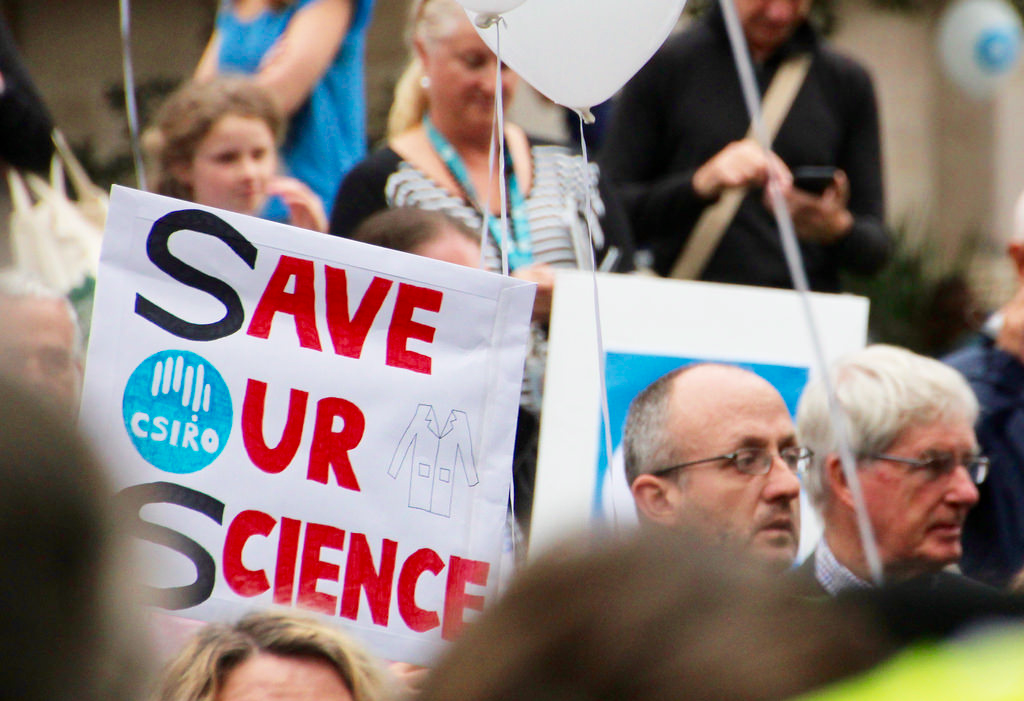On April 22, 2017, scientists, science enthusiasts, and concerned citizens are participating in the March for Science in Washington, DC and in cities throughout the globe to celebrate science and to advocate for evidence-based policy in the public’s best interest. Want to take action beyond the march? Apply for a science policy fellowship for an opportunity to insert your expertise in the policy-making process at the state, national and global level. Click the links to bookmark these fellowships to your ProFellow account.
AAAS Science & Technology Policy Fellowships
Fellows select assignments in Congressional offices or federal agencies. This is a year-long opportunity, beginning September 1 and ending August 31. AAAS seeks candidates from a broad array of backgrounds and a diversity of geographic, disciplinary, gender, and ethnic perspectives, as well as disability status. Fellows have ranged in age from late 20s to early 70s. They represent a spectrum of career stages, from recent PhD graduates to faculty on sabbatical to retired scientists and engineers. Stipend of $75K – $100K.
STPI’s Policy Fellowship Program
This two-year fellowship provides recent bachelor’s degree recipients with a unique opportunity to use their critical thinking and analytic skills to work on a diverse set of challenges in science and technology (S&T) policy areas. Fellows will be involved in collaborative research for leaders in the White House Office of Science and Technology Policy (OSTP) in the Executive Office of the President and other Federal Government organizations. Fellows work with teams of researchers to support a wide variety of S&T policy-related tasks. Individuals who earned a recent bachelor’s degree are eligible to apply for the Fellowship. The fellowship is a paid, benefits-eligible position.
AGU Congressional Science Fellowship
The Congressional Science Fellowship program places highly qualified, accomplished scientists, engineers, and other professionals in the offices of either an individual Member of Congress or on a committee for a one-year assignment. The Fellowship program enables more effective use in government of scientific knowledge and provides a unique experience to scientists seeking careers involving public use of technical information.
John Bahcall Public Policy Fellowship
The John Bahcall Public Policy Fellowship was created in 2006 to provide an opportunity for early career astronomers to gain experience in the world of science policy and serves to augment the policy advocacy programs of the society. The Bahcall Fellowship is currently a one-year postdoctoral level appointment, renewable for a second year. The Fellow works in partnership with the Director of Public Policy to coordinate the public policy activities of the American Astronomical Society (AAS).
Christine Mirzayan Science & Technology Policy Graduate Fellowship
This 12-week professional development fellowship engages fellows in the analytical process that informs US science and technology policy. Fellows develop the basic skills necessary to participate in science policy at the federal, state, or local levels. Graduate and professional school students and those who have completed a graduate degree within the last 5 years may apply. Areas of study may include any social/behavioral science, medical/health discipline, physical or biological science, any field of engineering, law, business, public administration, or any relevant interdisciplinary field. Fellows receive a stipend of $8,500.
John A. Knauss Marine Policy Fellowship
The NOAA Sea Grant John A. Knauss Marine Policy Fellowship, established in 1979, provides a unique educational experience to graduate students who have an interest in ocean, coastal and Great Lakes resources and in the national policy decisions affecting those resources. The program matches highly qualified graduate students with “hosts” in the legislative and executive branch of government located in the Washington, D.C. area, for a one year paid fellowship. Provides up to $56,500 to each Fellow.
Alaska Sea Grant Fellowships
Alaska Sea Grant, located at the University of Alaska Fairbanks, is offering graduate students, or those who recently completed their degree, the opportunity to acquire on-the-job-training in Alaska-based federal and state agencies for one year as part of ASG’s State Fellowship Program. This is a paid fellowship ($3,500 per month for a total of $42,000) for highly motivated and qualified applicants who are focused on science or policy that affects Alaska’s marine and freshwater resources. Applicants must be U.S. citizens. Alaska residents and students completing their degrees at Alaska institutions will be given preference.
California Science and Technology Fellowship
The California Science and Technology (CCST) Policy Fellowships place professional scientists and engineers in the California State Legislature for one-year appointments. The fellowships are ideal for qualified applicants who are interested in improving the interface between science and legislative decision-making and who want to learn the public policy decision-making process. To be eligible for the Fellowship, candidates must possess a PhD or equivalent level degree OR an MS degree in an engineering discipline, plus at least three years post-degree experience. The base stipend is $45,000 plus benefits.
Gulf Research Program Science Policy Fellowships
The science policy fellowship program helps early-career scientists hone their skills by putting them to practice for the benefit of Gulf Coast communities and ecosystems. Fellows gain first-hand policymaking experience as they spend a year on the staff of federal or state environmental, natural resource, oil and gas, or public health agencies in the Gulf of Mexico region. Fellows who have completed an MA, MS, or MPH degree or who are currently enrolled in a doctoral program will receive an annual stipend of $45,000. Fellows who have completed a PhD, ScD, MD, or DVM will receive an annual stipend of $55,000. Stipends will be paid directly to the fellow in monthly disbursements.
Jacobs Science Writer Fellowship
The Science Writer Fellowship will bring five science, society, or health policy journalists from the US and UK to Zurich, Switzerland, to enhance their understanding of the work and research of the Klaus J. Jacobs Research Prize recipient, a leading international scholar in the field of child and youth development, and to connect these journalists with Swiss premier research institutions. The annual Fellowship, launched in 2015, covers Fellows’ travel and ground costs and includes a five-day program in Zurich.
© Victoria Johnson 2017, all rights reserved.
